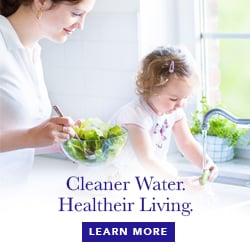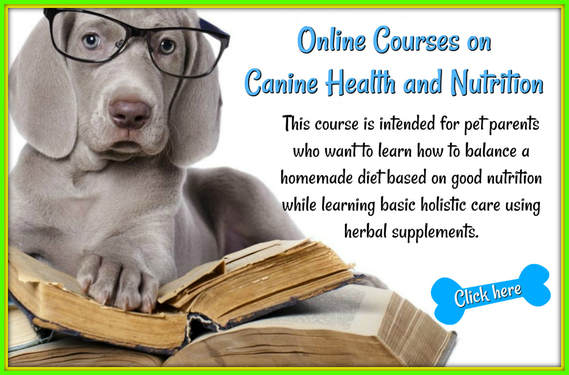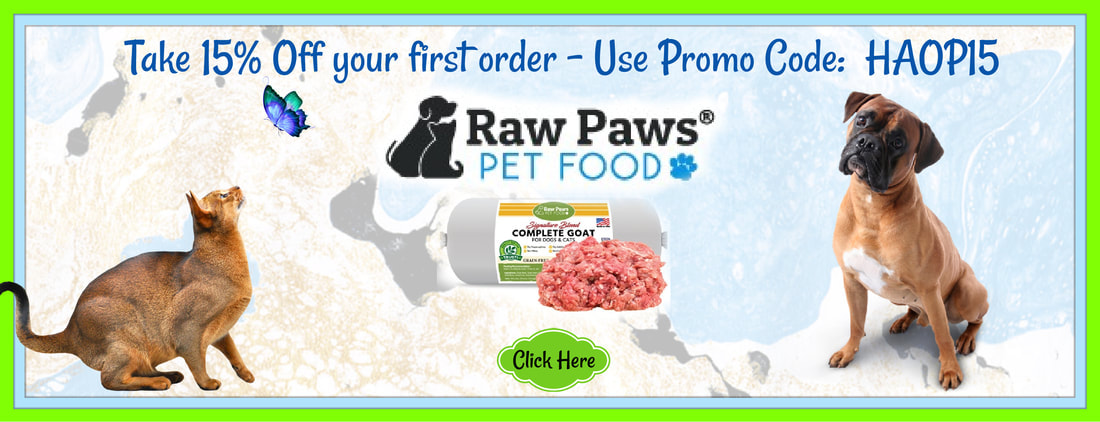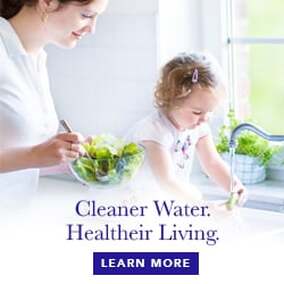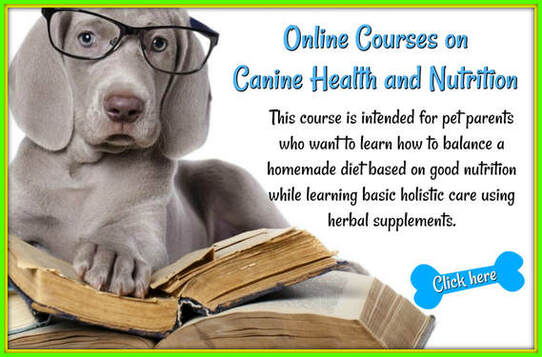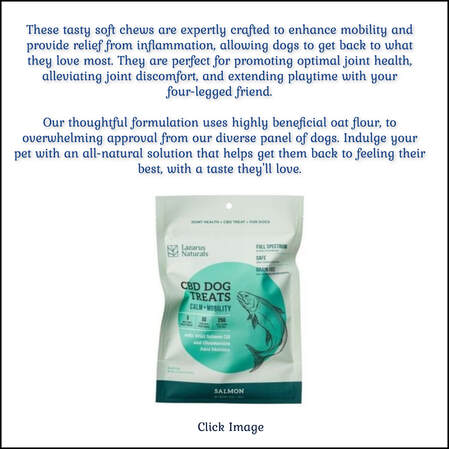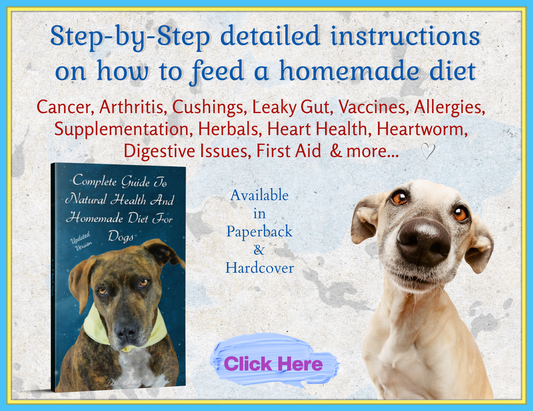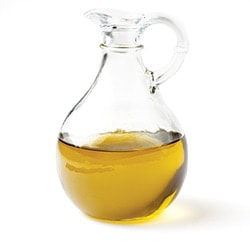
By Dirt Doctor
Canola is bad oil, a bad fat. It's one of the worse things Whole Foods and other "health" stores continue to sell and they need to change. Look carefully at the labels of their prepared foods and you'll see canola used as the oil frequently.
Olive oil comes from olives. Sesame seed oil comes from sesame seeds. But what is a canola? Canola is actually a made-up word for a genetically modified product.
Canola stands for “Canadian oil low acid.” It’s (sadly) a Canadian invention and subsidized by the government. The subsidies make it very cheap to use, so almost all processed or packaged foods contain canola oil. Be sure to read the ingredients. Here’s why you should:
Canola is bad oil, a bad fat. It's one of the worse things Whole Foods and other "health" stores continue to sell and they need to change. Look carefully at the labels of their prepared foods and you'll see canola used as the oil frequently.
Olive oil comes from olives. Sesame seed oil comes from sesame seeds. But what is a canola? Canola is actually a made-up word for a genetically modified product.
Canola stands for “Canadian oil low acid.” It’s (sadly) a Canadian invention and subsidized by the government. The subsidies make it very cheap to use, so almost all processed or packaged foods contain canola oil. Be sure to read the ingredients. Here’s why you should:
THE SCOOP ON CANOLA
Canola oil is developed from the rapeseed plant, which is part of the mustard family of plants. These oils have long been used for industrial purposes (in candles, lipsticks, soaps, inks, lubricants, and befouls). It’s industrial oil, not a food.
Rapeseed oil is the source behind mustard gas, and on its own, it causes emphysema, respiratory distress, anemia, constipation, irritability, and blindness. But through the beauty of genetic modification, we now sell it as edible oil.
The claim is that canola is safe to use because through modification it is no longer rapeseed but “canola.” Except… canola is just genetically modified rapeseed. It has been marketed as wonder oil that is low in saturated fats with a beneficial omega-3 fatty acid profile. It is recognized by the American Dietetic Association and the American Heart Association based on the belief that the absence of saturated fats alone makes it healthy.
Canola oil is developed from the rapeseed plant, which is part of the mustard family of plants. These oils have long been used for industrial purposes (in candles, lipsticks, soaps, inks, lubricants, and befouls). It’s industrial oil, not a food.
Rapeseed oil is the source behind mustard gas, and on its own, it causes emphysema, respiratory distress, anemia, constipation, irritability, and blindness. But through the beauty of genetic modification, we now sell it as edible oil.
The claim is that canola is safe to use because through modification it is no longer rapeseed but “canola.” Except… canola is just genetically modified rapeseed. It has been marketed as wonder oil that is low in saturated fats with a beneficial omega-3 fatty acid profile. It is recognized by the American Dietetic Association and the American Heart Association based on the belief that the absence of saturated fats alone makes it healthy.
It is now believed that rapeseed has a cumulative effect, taking almost 10 years before symptoms begin to manifest. One possible effect of long-term use is the destruction of the protective coating surrounding nerves called the myelin sheath. This is like having raw, open wires in the body.
Some symptoms include:
From a nutritional perspective, canola oil has been found to deplete Vitamin E. It has a tendency to inhibit proper metabolism of foods and normal enzyme function. It also depresses the immune system.
One of my listeners (Matilda) suggested an alternative to canola -- clarified butter. It is milk fat rendered from butter to separate the milk solids and water from the butterfat. Typically, it is produced by melting butter and allowing the different components to separate by density. The water evaporates, some solids float to the surface and are skimmed off, and the remainder of the milk solids sink to the bottom and are left behind when the butter fat (which would then be on top) is poured off.
Some symptoms include:
- uncoordination when walking or writing
- deterioration of memory and thinking processes
- difficulty urinating/incontinence
- nervous breakdown
- heart problems/arrhythmia
From a nutritional perspective, canola oil has been found to deplete Vitamin E. It has a tendency to inhibit proper metabolism of foods and normal enzyme function. It also depresses the immune system.
One of my listeners (Matilda) suggested an alternative to canola -- clarified butter. It is milk fat rendered from butter to separate the milk solids and water from the butterfat. Typically, it is produced by melting butter and allowing the different components to separate by density. The water evaporates, some solids float to the surface and are skimmed off, and the remainder of the milk solids sink to the bottom and are left behind when the butter fat (which would then be on top) is poured off.
Ghee is oil with a long, fascinating history. Ghee has been a staple in Indian cooking for centuries. Besides being a practical way to preserve butter, Ghee was renowned for its medicinal and rejuvenates qualities. Ayurveda, the ancient natural healing system of India, regards Ghee as a vital food for healthy skin, mental clarity, and good digestion... a food for balancing all body types.
Certified Organic Ghee (clarified butter) from grass fed, pastured cows is salt free, lactose and casein free, Kosher and has no GMOs (No Genetically Modified Organisms).
Certified Organic Ghee (clarified butter) from grass fed, pastured cows is salt free, lactose and casein free, Kosher and has no GMOs (No Genetically Modified Organisms).
The Truth About Canola Oil
According to the mainstream media, Canola oil is “heart healthy” and a good source of monounsaturated fats similar to olive oil. Unfortunately, much of what you hear in the mainstream media has been influenced by the heavy-handed marketing tactics of big food companies. Canola oil is cheap to produce, so they’ve spent a lot of money trying to convince you to think Canola is a “health oil” so that consumers, restaurants, institutions, etc. will buy it up as their main oil of choice. Here is the inconvenient truth about Canola oil.
History of Canola
Canola oil is made from the seeds of a plant called rape, which is in the turnip family. Since the Industrial Revolution, rapeseed oil has been an important component of lubricants for ships and steam engines, because unlike most oils, it sticks to wet metal. During World War II the U.S. built a lot of ships, and so needed lots of rapeseed oil, but couldn’t get it from traditional suppliers in Europe and Asia. The Canadian rapeseed industry, which had been relatively small, exploded to fill the gap, and played an important role in the allied naval effort, becoming rich and powerful in the process.
But rapeseed oil demand fell hard when the war was over, and so began an intensive program to breed a rapeseed edible to humans. Traditional rapeseed oil contains almost 60 percent monounsaturated fatty acids (compared to about 70 percent in olive oil). Unfortunately, about two-thirds of the monounsaturated fatty acids in rapeseed oil are erucic acid, a 22-carbon monounsaturated fatty acid that had been associated with Keshan’s disease, characterized by fibrotic lesions of the heart.
According to the mainstream media, Canola oil is “heart healthy” and a good source of monounsaturated fats similar to olive oil. Unfortunately, much of what you hear in the mainstream media has been influenced by the heavy-handed marketing tactics of big food companies. Canola oil is cheap to produce, so they’ve spent a lot of money trying to convince you to think Canola is a “health oil” so that consumers, restaurants, institutions, etc. will buy it up as their main oil of choice. Here is the inconvenient truth about Canola oil.
History of Canola
Canola oil is made from the seeds of a plant called rape, which is in the turnip family. Since the Industrial Revolution, rapeseed oil has been an important component of lubricants for ships and steam engines, because unlike most oils, it sticks to wet metal. During World War II the U.S. built a lot of ships, and so needed lots of rapeseed oil, but couldn’t get it from traditional suppliers in Europe and Asia. The Canadian rapeseed industry, which had been relatively small, exploded to fill the gap, and played an important role in the allied naval effort, becoming rich and powerful in the process.
But rapeseed oil demand fell hard when the war was over, and so began an intensive program to breed a rapeseed edible to humans. Traditional rapeseed oil contains almost 60 percent monounsaturated fatty acids (compared to about 70 percent in olive oil). Unfortunately, about two-thirds of the monounsaturated fatty acids in rapeseed oil are erucic acid, a 22-carbon monounsaturated fatty acid that had been associated with Keshan’s disease, characterized by fibrotic lesions of the heart.
|
But, in 1978, the word “Canola” was invented to describe a new type of oil seed that was selectively bred from the original rapeseed to have significantly less erucic acid. This new oil was first developed in Canada, and the name Canola actually comes from the term, Canadian oil, low acid. In nature, there is actually no such thing as a “Canola plant” that produces “Canola oil.”
The more interesting part of the history of Canola oil is how such an industrial oil became the most popular cooking oil used today… In collusion with the American Heart Association, numerous government agencies and departments of nutrition at major universities, the food oil industry had been promoting polyunsaturated oils as a heart-healthy alternative to “artery-clogging” saturated fats. |
But by the late 1970s, the cooking oil industry in North America realized it had a problem: It had become increasingly clear that consumption of industrial, polyunsaturated oils—particularly corn oil and soybean oil—was strongly associated with numerous inflammatory health problems, including heart disease and cancer.
The industry was in a bind. It could not continue using large amounts of liquid polyunsaturated oils and make health claims about them in the face of mounting evidence of their dangers. Nor could manufacturers return to using traditional healthy saturated fats—butter, lard, tallow, palm oil and coconut oil—without causing an uproar. Besides, these fats cost far too much for the huge profit margins in the industry.
According to “The Great Con-ola,” the solution was to embrace the use of monounsaturated oils, such as olive oil. Studies had shown that olive oil has a “better” effect than polyunsaturated oils on cholesterol levels and other blood parameters. Besides, Ancel Keys and other promoters of the now-debunked lipid hypothesis had popularized the notion that the Mediterranean diet rich in olive oil protected against heart disease and ensured a long and healthy life. But, olives require special growing conditions that make it impossible for olive oil to be used widely, plus olive oil is costly, especially for commercial products like margarine, biscuits, salad dressings, etc.
In the 1980s, Canola oil began to be marketed in the United States. For that to happen, it had to be granted GRAS (generally regarded as safe) status by the Food and Drug Administration. GRAS status is typically awarded to foods and herbal products that have been traditionally used, for hundreds or even thousands of years, without known adverse effects. Canola oil was a new product without any track record. And it was developed from a banned product known to have toxic effects. So how did it obtain GRAS status? No one knows for sure, but it has been rumored that the Canadian government spent US$50 million to get it approved.
According to “The Great Con-ola,” the solution was to embrace the use of monounsaturated oils, such as olive oil. Studies had shown that olive oil has a “better” effect than polyunsaturated oils on cholesterol levels and other blood parameters. Besides, Ancel Keys and other promoters of the now-debunked lipid hypothesis had popularized the notion that the Mediterranean diet rich in olive oil protected against heart disease and ensured a long and healthy life. But, olives require special growing conditions that make it impossible for olive oil to be used widely, plus olive oil is costly, especially for commercial products like margarine, biscuits, salad dressings, etc.
In the 1980s, Canola oil began to be marketed in the United States. For that to happen, it had to be granted GRAS (generally regarded as safe) status by the Food and Drug Administration. GRAS status is typically awarded to foods and herbal products that have been traditionally used, for hundreds or even thousands of years, without known adverse effects. Canola oil was a new product without any track record. And it was developed from a banned product known to have toxic effects. So how did it obtain GRAS status? No one knows for sure, but it has been rumored that the Canadian government spent US$50 million to get it approved.
Genetic Engineering and Canola
While the original Canola was created through basic laboratory breeding and selection techniques, a major modification in 1995 introduced Canola that was genetically engineered to contain bacterial DNA to make it resistant to the toxic herbicide, Roundup. Genetically modified crops are made in the lab from combining the DNA of two or more different species that cannot naturally reproduce together (like tuna and tomatoes). Such Franken-food could never occur in nature, even by random mutation. In fact, most Canola oil today comes from genetically engineered seed so far deviated from natural rapeseed that it can be patented.
Today, about 82 percent of the world’s Canola crop is genetically engineered to resist Roundup. The Roundup-Ready Canola seed is patented by Monsanto, and farmers can be sued for saving the seed or for having “unauthorized” Canola plants on their fields. Since pollen drift is impossible to stop, it is almost impossible for organic Canola farmers to keep these patented contaminants out of their crops. It is also next to impossible for farmers (organic or otherwise) to combat the Superweeds that are evolving in response to constant, massive doses of Roundup.
There are numerous concerns about genetically engineered (GM) crops that should make anyone cautious (at best) about their consumption. But the simple fact that Roundup-Ready Canola is doused repeatedly throughout the season with an extremely toxic herbicide that is known to harm both people and planet, is reason enough to stay far away from it.
While the original Canola was created through basic laboratory breeding and selection techniques, a major modification in 1995 introduced Canola that was genetically engineered to contain bacterial DNA to make it resistant to the toxic herbicide, Roundup. Genetically modified crops are made in the lab from combining the DNA of two or more different species that cannot naturally reproduce together (like tuna and tomatoes). Such Franken-food could never occur in nature, even by random mutation. In fact, most Canola oil today comes from genetically engineered seed so far deviated from natural rapeseed that it can be patented.
Today, about 82 percent of the world’s Canola crop is genetically engineered to resist Roundup. The Roundup-Ready Canola seed is patented by Monsanto, and farmers can be sued for saving the seed or for having “unauthorized” Canola plants on their fields. Since pollen drift is impossible to stop, it is almost impossible for organic Canola farmers to keep these patented contaminants out of their crops. It is also next to impossible for farmers (organic or otherwise) to combat the Superweeds that are evolving in response to constant, massive doses of Roundup.
There are numerous concerns about genetically engineered (GM) crops that should make anyone cautious (at best) about their consumption. But the simple fact that Roundup-Ready Canola is doused repeatedly throughout the season with an extremely toxic herbicide that is known to harm both people and planet, is reason enough to stay far away from it.
|
Bogus Health Claims for Canola
It is true that Canola oil is high in monounsaturates, but Canola oil is anything but “healthy.” Canola oil typically ranges between 55-65% monounsaturated fat and between 28-35% polyunsaturated fat, with just a small amount of saturated fat. While we’ve been led to believe that high monounsaturated fat oils are good for us (which they are in the case of extra virgin olive oil or from unprocessed nuts or seeds), the fact is that Canola oil has more detriments than it does benefits. |
One of the biggest problems with highly processed, industrial oils such as corn oil, soybean oil and Canola oil, is that the polyunsaturated component of the oil is highly unstable under heat, light, and pressure, which heavily oxidize the polyunsaturates, increasing free radicals in your body.
The end result of all of this refining and processing are oils that are highly inflammatory in your body when you ingest them, potentially contributing to heart disease, cancer, weight gain, and other degenerative diseases.
The end result of all of this refining and processing are oils that are highly inflammatory in your body when you ingest them, potentially contributing to heart disease, cancer, weight gain, and other degenerative diseases.
The reason that extra virgin olive oil is good for you is that it is usually cold pressed without the use of heat and solvents to aid extraction. Canola oil, on the other hand, is typically extracted and refined using high heat, pressure, and toxic petroleum solvents such as hexane. Almost all Canola oil undergoes a process of caustic refining, degumming, bleaching, and deodorization, all using high heat and questionable chemicals.
(If your food requires hexane, degumming, bleaching and deodorization, should you be eating it?)
Even worse, all of the high-heat, high-pressure processing with solvents actually forces some of the omega-3 content of Canola oil to be transformed into trans fats! According to Dr. Mary Enig, Nutritional Biochemist, “Although the Canadian government lists the trans fat content of Canola at a minimal 0.2 percent, research at the University of Florida at Gainesville, found trans fat levels as high as 4.6 percent in commercial liquid Canola oil.”
And this is the crap that they are marketing to you as a “heart-healthy” oil!
Possibly the greatest danger of Canola oil is that even though Canola oil now has Generally Recognized as Safe (GRAS) status, no long-term studies on humans have ever been done. Animal studies on Low Erucic Acid Rapeseed oil were performed when the oil was first developed and have continued to the present. The results challenge not only the health claims made for Canola oil, but also the theoretical underpinnings of the lipid hypothesis.
In 1996, Japanese scientists announced a study wherein a special Canola oil diet had actually killed laboratory animals. Reacting to this unpublished, but verified and startling information, a duplicate study was conducted by Canadian scientists, using piglets and a Canola oil-based milk-replacer diet. In this second study, published in Nutrition Research, 1997, the researchers verified that Canola oil somehow depleted the piglets of vitamin E to a dangerously low level.
(If your food requires hexane, degumming, bleaching and deodorization, should you be eating it?)
Even worse, all of the high-heat, high-pressure processing with solvents actually forces some of the omega-3 content of Canola oil to be transformed into trans fats! According to Dr. Mary Enig, Nutritional Biochemist, “Although the Canadian government lists the trans fat content of Canola at a minimal 0.2 percent, research at the University of Florida at Gainesville, found trans fat levels as high as 4.6 percent in commercial liquid Canola oil.”
And this is the crap that they are marketing to you as a “heart-healthy” oil!
Possibly the greatest danger of Canola oil is that even though Canola oil now has Generally Recognized as Safe (GRAS) status, no long-term studies on humans have ever been done. Animal studies on Low Erucic Acid Rapeseed oil were performed when the oil was first developed and have continued to the present. The results challenge not only the health claims made for Canola oil, but also the theoretical underpinnings of the lipid hypothesis.
In 1996, Japanese scientists announced a study wherein a special Canola oil diet had actually killed laboratory animals. Reacting to this unpublished, but verified and startling information, a duplicate study was conducted by Canadian scientists, using piglets and a Canola oil-based milk-replacer diet. In this second study, published in Nutrition Research, 1997, the researchers verified that Canola oil somehow depleted the piglets of vitamin E to a dangerously low level.
Any “food” substance that depletes vitamin E rapidly is extremely dangerous. Vitamin E is absolutely essential to human health. It is critically necessary in the body when processed fats are eaten because Vitamin E controls the lipid peroxidation that results in dangerous free-radical activity, which in turn causes lesions in your arteries and other problems.
Canola oil now has been shown to be a very heavy abuser of Vitamin E, with the potential for rapidly depleting the body of this important vitamin.
The Bottom Line
The bottom line is that Canola is an inflammatory oil in your body that contains foreign DNA, trans fats, and toxic chemical residues. It is also an environmental scourge and a threat to organic farming, and it should be avoided at all costs.
The dangers of canola oil make its use unjustifiable.
Healthier, traditional alternatives include:
Canola oil now has been shown to be a very heavy abuser of Vitamin E, with the potential for rapidly depleting the body of this important vitamin.
The Bottom Line
The bottom line is that Canola is an inflammatory oil in your body that contains foreign DNA, trans fats, and toxic chemical residues. It is also an environmental scourge and a threat to organic farming, and it should be avoided at all costs.
The dangers of canola oil make its use unjustifiable.
Healthier, traditional alternatives include:
- Extra virgin olive oil – for low temperature cooking or as a healthy salad dressing oil
- Virgin coconut oil - great for all temperatures of cooking due to it’s high stability under heat. A great source of healthy saturated fats in the form of medium chain triglycerides (MCTs), one of which is Lauric Acid, which helps support the immune system and is lacking in most western diets.
- Organic grass-fed butter - a great source of Conjugated Linoleic Acid (CLA), which has even been shown in studies to help prevent cancer, and help muscle building and fat burning.
- Lard, tallow and other animal fats from grass-fed, pasture-raised animals – also a source of CLA, Vitamin D, and saturated fats that help with hormone balance, brain function and vitamin absorption.
Olive Oil
Olive Oil Linked to Reduced Risk of Cancer
From WellnessTimes
It seems appropriate that researchers at the University of Athens in Greece would want to study olive oil. After all, the oil is a key component of the Mediterranean diet, and Greece is a part of the region where the disease-fighting diet originates.
A literature review published in October 2011 in the journal Lipids in Health and Disease by Greek researchers analyzed data from 19 different studies featuring 13,800 people with cancer and 23,340 people without cancer. The researchers found that the people who consumed the most olive oil (about an ounce a day) had a 34 percent lower likelihood of developing cancer.
The researchers conclude that because olive oil is a monounsaturated “healthy” fat, it can provide protection against cancer. They also state that olive oil has antioxidant activity, which may contribute to the anti-cancer effects. The purest form of olive oil is organic extra-virgin olive oil. The researchers confirm that extra-virgin olive oil is high in antioxidants and a rich source of oleic acid, an essential omega-9 fatty acid, which could explain it’s role in helping to prevent cancer.
The Mediterranean Diet has also been show to help prevent heart disease. In addition to olive oil, the Mediterranean diet is high in fresh fruits and vegetables, whole grains, nuts, fish and red wine in moderation.
From WellnessTimes
It seems appropriate that researchers at the University of Athens in Greece would want to study olive oil. After all, the oil is a key component of the Mediterranean diet, and Greece is a part of the region where the disease-fighting diet originates.
A literature review published in October 2011 in the journal Lipids in Health and Disease by Greek researchers analyzed data from 19 different studies featuring 13,800 people with cancer and 23,340 people without cancer. The researchers found that the people who consumed the most olive oil (about an ounce a day) had a 34 percent lower likelihood of developing cancer.
The researchers conclude that because olive oil is a monounsaturated “healthy” fat, it can provide protection against cancer. They also state that olive oil has antioxidant activity, which may contribute to the anti-cancer effects. The purest form of olive oil is organic extra-virgin olive oil. The researchers confirm that extra-virgin olive oil is high in antioxidants and a rich source of oleic acid, an essential omega-9 fatty acid, which could explain it’s role in helping to prevent cancer.
The Mediterranean Diet has also been show to help prevent heart disease. In addition to olive oil, the Mediterranean diet is high in fresh fruits and vegetables, whole grains, nuts, fish and red wine in moderation.


